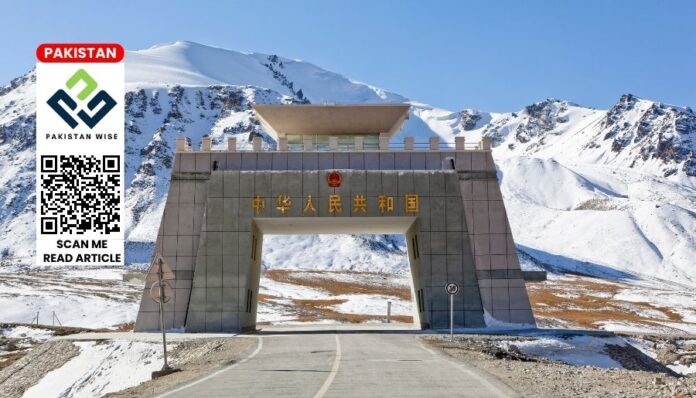The recent suspension of Khunjerab Pass, a vital conduit connecting Pakistan and China, has raised concerns within the diplomatic sphere. Despite the prior assurance of the pass remaining open throughout the year, the abrupt four-month closure from December to March challenges the consistency outlined in the joint press statement issued on October 20. This article delves into the intricacies surrounding the closure, shedding light on the diplomatic negotiations required to rectify this situation and secure the pass’s year-round operation.
The Current Scenario:
Khunjerab Port, currently operating in a seasonal customs clearance mode, awaits official approval for its year-round operation. This temporary measure stems from the imperative need to comply with the “Port Entry and Exit Management Measures.” The flexibility retained in the customs clearance process allows for special pass openings during the closure period, emphasizing the adaptability required in managing essential international passages.
Diplomatic Negotiations:
To address the apparent contradiction and achieve a seamless year-round operation for Khunjerab Pass, both Pakistan and China are engaged in diplomatic negotiations. The primary focus is on revising and signing an agreement that delineates the terms for the management of border ports. The involvement of China’s State Port Management Office is pivotal in this decision-making process, amplifying the significance of cooperative efforts in ensuring the efficacy of border regions and trade routes.
The Role of the State Port Management Office:
China’s State Port Management Office holds a central role in shaping the fate of Khunjerab Pass. With the responsibility of overseeing and regulating port activities, its involvement underscores the cooperative efforts required between the two nations. The decision-making process involves meticulous considerations of the economic, strategic, and geopolitical implications, emphasizing the need for a comprehensive and mutually beneficial agreement.
Year-round Operation Benefits:
The pursuit of year-round operation for Khunjerab Pass is not merely a procedural formality; it holds substantial benefits for both nations. A continuous flow of trade and commerce fosters economic growth and stability in the region. The pass serves as a crucial link in the China-Pakistan Economic Corridor (CPEC), making its uninterrupted operation vital for the success of this ambitious project.
Diplomatic Implications:
The temporary closure of Khunjerab Pass brings to the forefront the complexities of international diplomacy and the tangible effects on essential passages. The evolving dynamics necessitate open communication channels and mutual agreements to address unforeseen challenges effectively. As both nations navigate these diplomatic waters, the goal remains to strike a balance between national interests and the broader regional benefits of sustained cross-border connectivity.
Conclusion:
In conclusion, the closure of Khunjerab Pass highlights the nuanced nature of diplomatic negotiations and their impact on critical international trade routes. The ongoing discussions between Pakistan and China underscore the necessity for transparent communication and adaptive agreements to ensure the smooth functioning of border regions. As both nations work towards a consensus, the focus remains on securing the year-round operation of Khunjerab Pass, fostering economic prosperity and regional stability.

